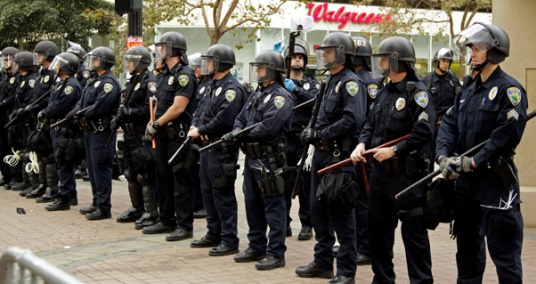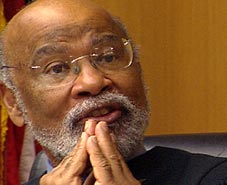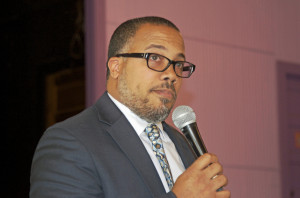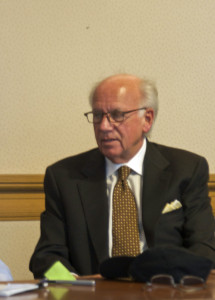Community Demand for Stronger Police Discipline
Aug 30, 2014
Posted in Community, Equal Rights/Equity, Police-Public Safety

By Ken Epstein
A coalition of police accountability activists is considering its next steps, while still smarting from city council members’ refusal to place a community-backed measure on the November ballot to create a police oversight commission.
The ballot measure was supported by a cross section of community groups but never made it to the City Council, failing to receive more than one vote at the Council’s Public Safety Committee meeting at the end of June.
Only District 5 Councilmember Noel Gallo was willing to back the initiative.
“It is the lack of political will on the part of city leaders that has kept Oakland under federal oversight for 12 years when it was supposed to take five,” said Rashidah Grinage, executive director of People United for a Better Life in Oakland (PUEBLO).
“It was lack of political will that kept the City Council from endorsing our police accountability ballot measure over the opposition of the Oakland Police Officers’ Association (OPOA).”

“And it is an ongoing lack of political will that means the city’s police disciplinary process almost never results in discipline, which is now being addressed by Judge Henderson,” she said.
Judge Thelton Henderson issued a ruling Aug. 14 instructing Compliance Director Robert Warshaw to investigate OPD’s internal disciplinary procedure after an arbitrator recently overturned the termination of an officer for misconduct during an Occupy Oakland protest in 2011.
“Imposition of discipline is meaningless if not final,” Judge Henderson wrote. “The city’s promises to correct deficiencies …have fallen short, and further intervention by this court is now required.”
“The court questions whether the defendants are adequately preparing cases for arbitration such that consistency of discipline can be assured to the greatest extent possible.”

Agreeing with Henderson’s ruling, Anthony Finnell the newly hired executive director of the Citizens’ Police Review Board, told the Oakland Post that his observations and conversations with authorities underscore what the judge said.
“I have spoken to members of OPD IAD (Internal Affairs) as well as the president of the OPOA (Barry Donelan of the Oakland Police Officers Association) and learned the arbitration process is so successful that when discipline is handed down to an officer the officer doesn’t even worry about it,” Finnell said in an email to the Post.
On Tuesday, Aug. 12, community members met with Federal Monitor/Compliance Director Warshaw in one of his rare public meetings with local residents.
“Our primary responsibility to make sure the OPD is in compliance with the NSA,” said Warshaw. He explained, however, that compliance does not simply mean gaining a passing score on all the tasks – it also requires that reforms achieve “sustainability.”
He said that Judge Henderson is committed to continuing court oversight of OPD until the city and the police department demonstrate that reforms are sustainable.
At present, Warshaw said he is working with police to evaluate the stop data the department collects to determine whether OPD is conducting racial profiling.
On Monday this week, community members met with Finnell, the new executive director of the Citizens’ Police Review Board.
For the past five years, the CPRB has lacked city support and funding. It did not have a director or investigators. Its findings were routinely ignored, and police often did not send representatives to the meetings.
There is cautious optimism now among police accountability activists that the CRPB can have more impact after the hiring of Finnell and a city decision to hire two investigators next month.

Finnell, a former homicide inspector in Indianapolis, said he is committed to seeking justice for Oakland residents and working with police to make sure they follow the law.
“I can make the changes” that people want to see, said Finnell. “We’ll keep trying until we get it right.”